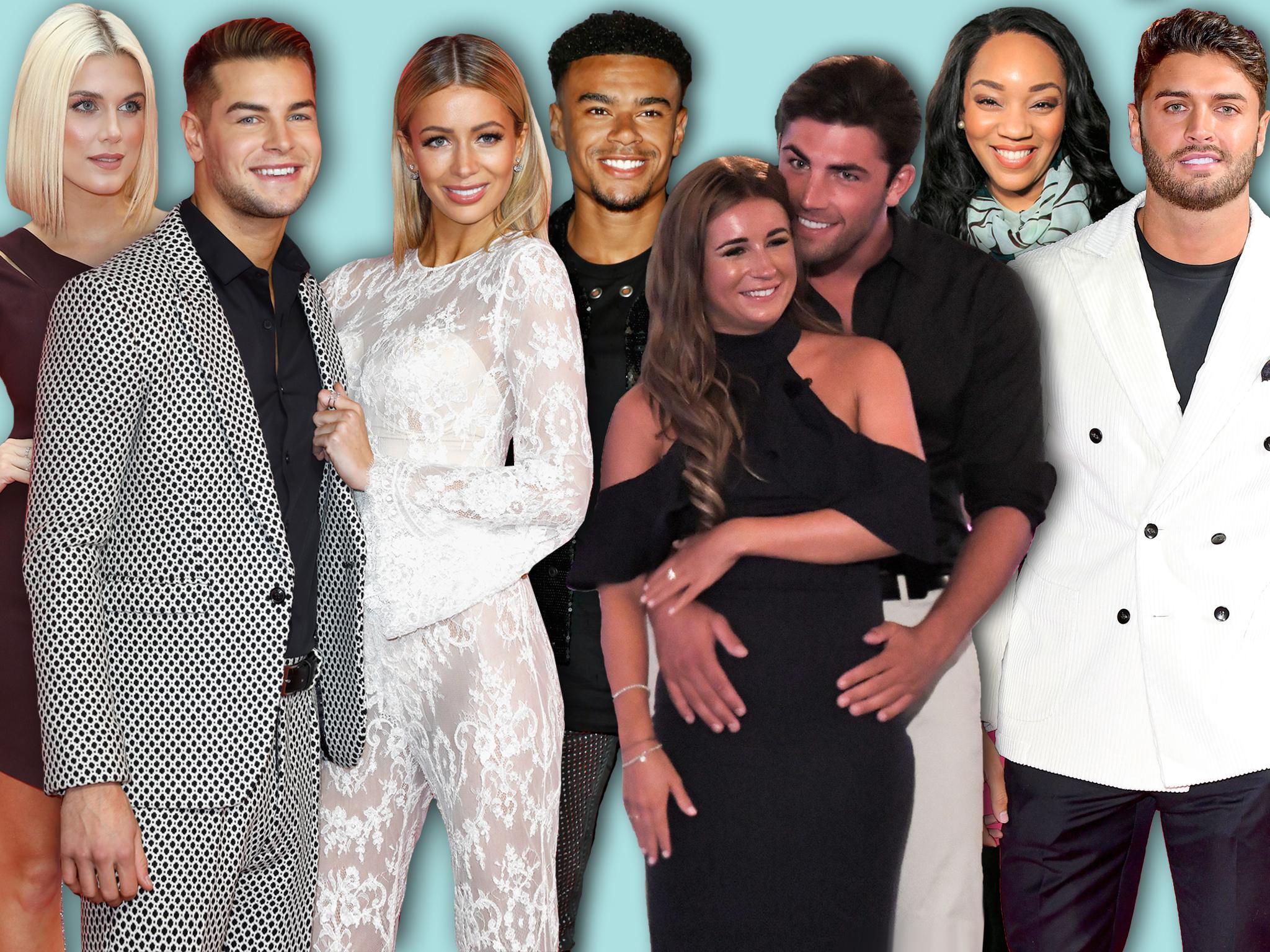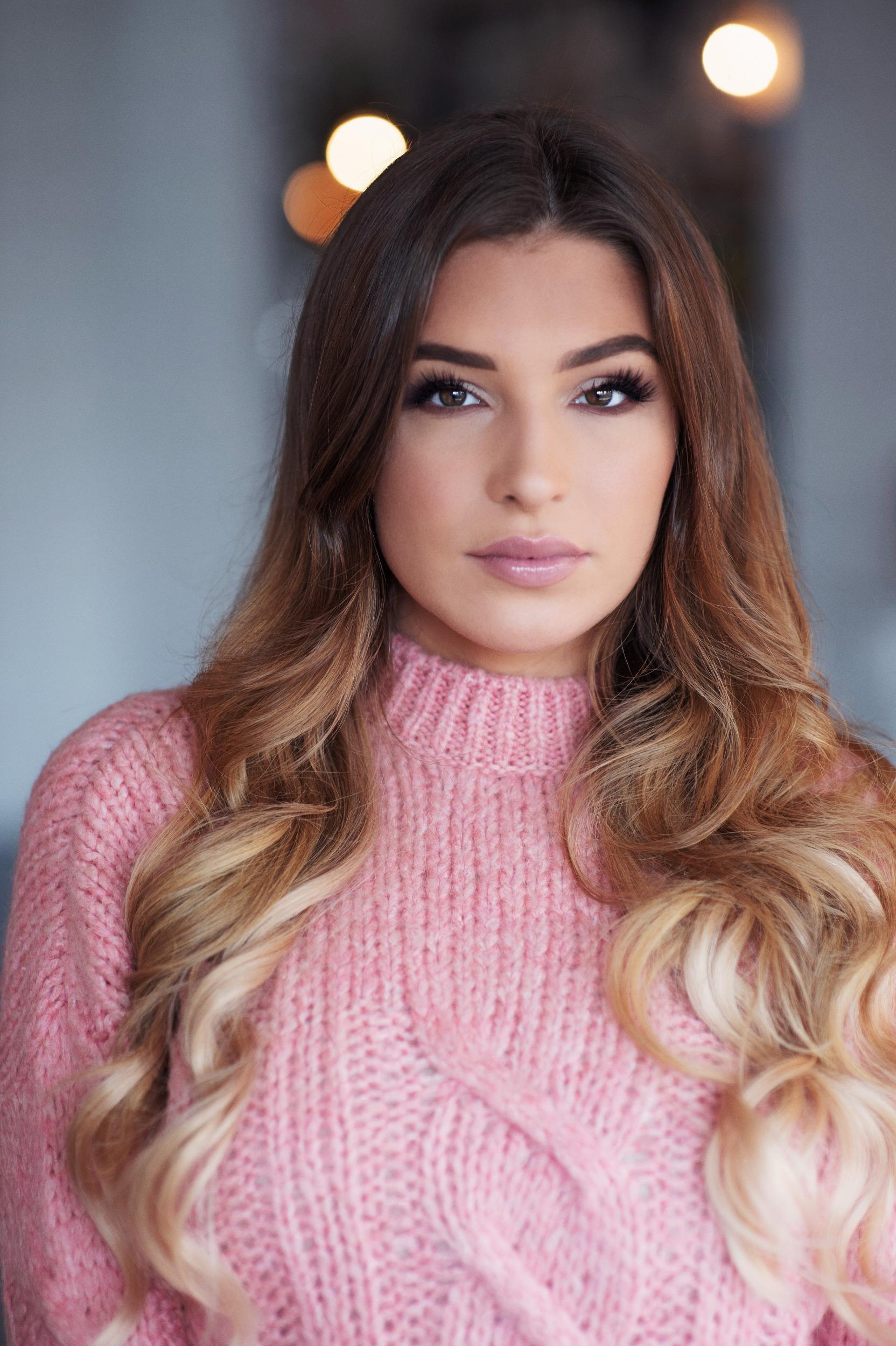The Independent's journalism is supported by our readers. When you purchase through links on our site, we may earn commission.
Love Island: The terrible toll of life as a reality star after the cameras are turned off
In light of the deaths of two former ‘Love Island’ stars and a former guest on ‘Jeremy Kyle’, Olivia Petter examines the darker truth of reality TV


Imagine returning from a blissful, sun-soaked holiday to find that everyone in the country is talking about you. Your face is on the cover of magazines, your dating history is being scrutinised by people you’ve never met and every secret you ever held dear is being used against you.
That is what can happen when you go on Love Island, the ITV2 reality TV programme that sends dozens of well-groomed single people to an idyllic Mallorcan villa in the hope that they will find love – and make great TV in the process.
Despite its popularity, the show has faced opprobrium in recent years, with 2018’s series receiving more than 4,100 complaints ranging from the footage that was aired to how contestants treated one another.
The criticism took a much sharper turn in March this year, when news broke that series three contestant Mike Thalassitis had been found dead aged 26. The former football player is the second ex-Love Island star to have died by suicide in the last year following Sophie Gradon, who passed away in June 2018 aged 32.
The passing of both Gradon and Thalassitis sparked a national conversation about the psychological effects of instant fame and the mental pressures of being on reality TV. And despite 80,000 people applying to be on this year’s series, according to ITV2, it’s a discussion that continues to gather pace. On 9 May, a guest on The Jeremy Kyle Show was found dead after filming an episode that reportedly left him in a highly emotional state, prompting ITV to cancel the long-running talk show.
But reports of such incidents are tragically nothing new. Since 1986, roughly 38 people are suspected to have died by suicide following appearances on reality TV programmes such as The Bachelor, Hell’s Kitchen and Wife Swap, a report by The Sun on Sunday claims. Individuals mentioned in the report include Britain’s Got Talent’s Jack Saunders, The Voice’s Anthony Riley and Kitchen Nightmares’ Joseph Cerniglia.
Experiencing suicidal thoughts is not uncommon among reality TV stars, either. In March, ex-Love Islander Alex Miller revealed that he suffered from depression after leaving the show, saying he ”would look at bridges and think ‘Yeah, I could drive into that’”. Former Jeremy Kyle guest Dwayne Davison – labelled the “most hated guest ever” – said that he faced extensive online abuse and tried to take his own life in 2018 after a stint on the programme five years ago. Other former reality stars, including Love Island’s Montana Brown and Zara Holland, have spoken of battling anxiety and panic attacks after finding fame on TV.
Understandably, there’s fierce opposition to simplifying the complexities of suicide and mental illness by placing the onus solely on reality TV programmes – Love Island host Caroline Flack recently labelled it “dangerous” – but the links are difficult to ignore.
Media psychologist Sally Baker explains that reality TV contestants may be particularly vulnerable to mental health issues because of the nature of their fame. “The public doesn’t judge them on a skill such as their ability to sing or dance,” she says. “How they are judged is closely linked to their behaviour and their appearance, and therefore has an impact on their own feelings of self-worth. What’s more, Baker adds, “they are the currency they trade for their chance of success.”
The other side of the coin is the likelihood that the type of person who puts themselves forward for a reality TV show might be seeking some sort of validation through the programme and therefore be more naturally sensitive to any negative judgement. “If they are relentlessly criticised when the show is over,” Baker continues, “they can feel immensely vulnerable because the rejection they experience can feel like a total rejection of who they are. This is only exacerbated by the fact that today’s reality shows put a great emphasis on a one-dimensional types of physical attractiveness.”
It should come as no surprise, then, that one of the most common criticisms levelled against Love Island by viewers is its lack of body diversity. While perpetuating unrealistic body ideals can obviously be damaging for those watching at home, it also puts immense pressures on the show’s participants themselves. “Contestants commit time, effort and expense to meet the exacting, superficial body image we see on screen,” Baker says. “And in return for beautifying and honing themselves to perfection, whether it’s via surgical enhancement or cosmetic fillers, they potentially win media opportunities and lucrative sponsorship deals.”
Love Island series four star Zara McDermott was on a family holiday in Bulgaria when cruel comments about her body on Instagram prompted a “breakdown at the dinner table”. “It was all hateful body-shaming comments on a photo of me and my ex-boyfriend at the beach,” she says.

Social media has an “undeniable” part to play in the mental wellbeing of reality TV contestants, says TV psychologist Charlotte Armitage. Unlike established actors, models and musicians, reality TV stars don’t necessarily have the same infrastructure when it comes to protecting themselves from threats and trolls. Additionally, many reality show stars, such as those on Love Island, I’m A Celebrity Get Me Out Of Here and the now-defunct Big Brother, are cut off from social media while filming, meaning they leave the programme with an entirely different profile – one that thousands of viewers will have been avidly following for weeks. “It can be a huge shock,” says Armitage, “and is worryingly not something that they have any level of preparation for.”
Bianca Miller-Cole, who was a finalist on BBC1’s The Apprentice in 2014, says she was given no guidance on how to handle her social media once the show aired. She tells The Independent: “I received nasty comments about my race, was told to ‘go back to my country’ and called a ‘monkey’. I also had endless comments about my appearance, with lots of people criticising the fact that I had a ‘really big forehead’. At one point I was even being stalked by someone. There was no support from the channel or the production team”.
Miller-Cole says she was given a month of PR guidance after leaving the programme: “Don’t get me wrong, I probably had the producers’ mobile numbers, but I didn’t feel like there was any ‘if you’re struggling, call us’ support. I think there should be some sort of helpline you can call if you are having trouble.”
In response to Miller-Cole’s claims, a spokesperson for The Apprentice said: “The wellbeing of the candidates that take part in The Apprentice is of paramount importance during and after filming, and we provide an experienced network of support that is always available wherever and whenever required. This includes meetings with a consultant psychotherapist during the casting process, and advice and support on using social media and handling the press before they enter the process and as the series goes on air, continuing after the final has aired. Our team is dedicated to providing the best duty of care to the contributors before, during and after filming.”
A representative for the BBC added: “For the BBC, planning around care for members of the public taking part in our programmes is always a core part of our production process and we have editorial guidelines to help protect vulnerable contributors.”
While production teams are – in theory – available to provide support to contestants, a handful of former reality stars have recently accused producers of actually invoking damage themselves by manipulating them during filming. Holland, who had her Miss GB title revoked after having sex with Alex Bowen on season two of Love Island, has accused the show’s producers of telling her how to behave and pressuring her into having sex on screen. ITV disputed Holland’s claims, saying at the time: “The opinions the islanders have, decisions they make and the relationships formed are completely within the control of the islanders themselves.”
Ex on the Beach star Jess Impiazi made similar claims in a recent interview with the BBC, explaining how one producer told her: “Lots of shagging tonight please girls.” Whizz Kid Entertainment, the production company behind Ex On The Beach, said “contributors are made fully aware of the nature of the programme before filming”. MTV, which airs the show, added: “Contributors’ welfare across our programming is of paramount importance to us.”
Contestants aren’t the only ones with concerns. More than half of the complaints (2,644) sent in for last year’s Love Island series were in response to a clip of Dani Dyer crying on camera after being shown footage of her partner Jack Fincham speaking to his ex-girlfriend in an adjacent villa, leading her to believe her relationship was in jeopardy. Following an assessment by broadcasting regulators Ofcom, it was confirmed that the ITV2 show did not breach broadcasting rules by airing the footage.
“I think there has to be an understanding that these shows are heavily produced and people need to not be naive,” says Ellie*, a former reality TV producer who has since moved into development. “These people are often young and seeking fame, so it’s not difficult to get reactions out of them.” Ellie explains that it’s the producer’s role to puppet the action on screen. “They’re often watching 24 hours of footage a day, every day. The tasks they create, such as those seen on Love Island, are designed to cause chaos and conflict. If we didn’t do that, we’d receive complaints about how boring the show is.”
Not all reality TV experiences are negative. As Ellie points out, these shows have kick-started careers for thousands of contestants, propelling them into other industries such as music and broadcasting. Despite the trolling, McDermott insists that she found being on Love Island “wholly positive”, adding: “I really enjoy the influencing side of my job now”. The support was also there throughout, she says. “I had the mobile numbers of five different producers when I left Love Island, and they said if there were ever any issues to call them.” Ultimately, she felt it was up to her to utilise the support available to her, rather than the other way around. “Producers don’t have a crystal ball,” the 22-year-old adds, “they can’t know what’s going on specifically in our lives unless someone tells them. I’m quite a rational person so I’ve found ways to deal with the trolls and not let them get to me now.”
Ashley James, who has appeared on Channel 4’s Made in Chelsea and Channel 5’s now-cancelled Celebrity Big Brother, says that while being on reality TV has made her “fiercely private” about her dating life, she too is grateful for the opportunities she’s had as a result. “It can be isolating and anxiety-inducing to have your private life made public, but for me the pros outweigh the cons. I felt fully supported on both shows and had access to therapists throughout filming.”
Ellie explains that procedures in terms of managing a contestant’s wellbeing differ between programmes. “I’ve worked on some shows where the aftercare lasted for three years,” she says. Roles vary too. With dating shows, there is usually one producer or director assigned to look after a couple throughout the series, Ellie explains. “You are mainly responsible for piecing together their story as it unfolds. It’s like interviewing but with less direct questions. We might drop in topics for discussion, ask questions that are relevant to that point in the story and ask questions like, ‘Tell me what happened this morning’ and ‘How did that make you feel?’. But a lot of research has been done beforehand.”
Producers can’t be held entirely accountable for the mental wellbeing of the contestants they recruit, she adds, all of whom undergo psychiatric evaluations ahead of being cast – though these have also been criticised as being insufficient. Miller-Cole, for example described hers as “generic”. But sufficient training for new producers working across reality TV shows might help better equip them with the tools to manage any issues before and after filming.

Change is already afoot in terms of aftercare. Following the death of Thalassitis, his friend and former co-star Jonny Mitchell launched a petition calling for “real support to all contestants” that has garnered more than 89,000 signatures. At the time, Mitchell’s demands were echoed on Twitter by several other Love Islanders, including Malin Andersson, Kady McDermott and Dom Lever.
Earlier this month, ITV announced its new duty of care guidelines. They state that contestants will be provided with psychological consultation throughout the series and will receive proactive contact from show representatives for 14 months after leaving the programme. They will also be offered “bespoke training on dealing with social media and advice on finance and adjusting to life back home”. The guidelines have been reviewed by the former British Telecom chief medical officer Dr Paul Litchfield, who has described them as showing a “degree of diligence that demonstrates the seriousness with which this is taken by the production team”.
After news broke of Dymond, who is believed to have failed a lie detector test on The Jeremy Kyle Show before taking his own life, ITV2 is also rumoured to have scrapped Love Island’s notorious lie detector segment that saw contestants challenge one another in brutal ways. Dymond’s death also caught the attention of MPs, who have now launched an inquiry led by the digital, culture, media and sport select committee into reality TV and the duty of care offered to participants both during and after filming.
But in light of the deaths, the complaints and the criticisms levelled at Love Island, would an easier solution be to cancel the programme altogether, as some former contestants have recently suggested? When asked if this had ever been considered, ITV Studios Entertainment’s managing director Angela Jain said: “No. Our duty of care has always been really robust as we’ve reflected in the statement, it’s an ongoing process.”
Ellie adds that axing the programme is highly unlikely given its record-breaking viewing figures. “Love Island is extraordinarily popular, and unlike other programmes likes Jeremy Kyle and Big Brother, it’s contemporary and relatively conflict-free. Producers are trying to create entertaining TV that people love to watch. And changes are already happening when it comes to supporting mental health. But you can’t blame a programme entirely when this falls short. For some people, maybe it’s the thing that pushes them over the edge. But you have to be in a position to be pushed in the first place.”
For confidential support on mental health call Samaritans free from any phone, at any time, on 116 123 (UK & RoI) or email jo@samaritans.org. In the US call 1-800-273-TALK or chat online
Love Island returns to ITV2 on Monday 3 June at 9pm
*Names have been changed
Join our commenting forum
Join thought-provoking conversations, follow other Independent readers and see their replies
Comments
Bookmark popover
Removed from bookmarks